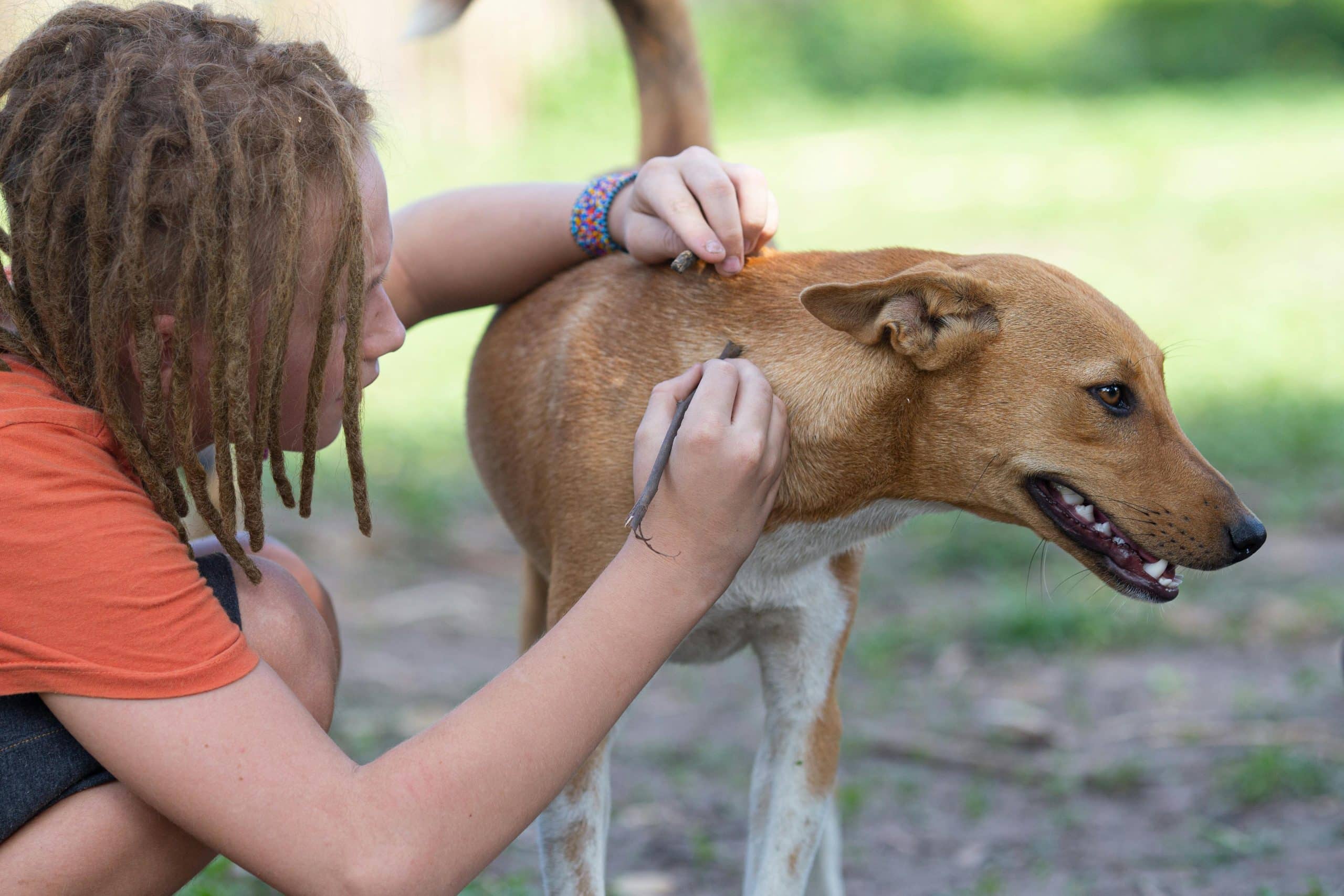What Impact Does Volunteering at Animal Shelters Have on Teenagers’ Empathy and Well-being?

The Power of Volunteering
Volunteering ranks as a noble endeavor that has been embraced by people of all ages and walks of life. It offers the opportunity to step outside one’s comfort zone and make a positive impact in the society. There are innumerable opportunities for you to volunteer, and one outstanding choice involves helping at animal shelters.
Working with animals is not only fulfilling but also has a significant impact on teenagers’ empathy and well-being. This article delves into the profound effects of volunteering at animal shelters on the youth. By the end, you will have a clearer understanding of its influence on their emotional and psychological welfare.
Also to see : Eco-friendly, comfortable scrub caps and surgical hats
Impact on Empathy
Empathy, the ability to understand and share the feelings of another, is an essential trait for people to have. It fosters compassion, enhances social interactions, and promotes a more humane society. For teenagers, empathy can be developed and nurtured in various ways, and one impactful method is through volunteering at animal shelters.
When teenagers volunteer their time to work with animals, they are exposed to an environment that requires them to be sensitive to the needs of the animals. The animals in shelters are often in need of care, love, and attention. They are often abandoned or abused, and their vulnerability can trigger feelings of empathy in teenagers. Through taking care of these animals, teenagers are able to put themselves in the position of these animals, and this, in turn, helps to cultivate and strengthen their ability to empathize.
Topic to read : What Is the Role of Artisanal Food Making in Promoting Gastrointestinal Health?
Influence on Well-being
The health benefits of volunteering are well-documented. According to research by PubMed, volunteering helps reduce stress levels, alleviates depression, and enhances overall happiness and satisfaction. When it comes to animal shelter volunteering, the benefits extend even further.
In this Google age, teenagers are often engrossed in their digital world, leading to social isolation, anxiety, and depression. Volunteering at animal shelters provides a break from this digital immersion and offers a chance for social interaction. It allows them to connect with other volunteers, staff, and the animals themselves, fostering social skills and building their confidence.
The work at an animal shelter also introduces teenagers to a sense of responsibility. They have to feed, clean, and take care of the animals, tasks that require commitment and diligence. This not only gives them a sense of purpose but also enhances their self-esteem, further promoting their mental well-being.
Social and Community Impact
Volunteering does not only benefit the individual but also has a ripple effect on the social and community fabric. When teenagers volunteer at animal shelters, they contribute positively to their communities in several ways.
Firstly, by investing their time and effort in taking care of animals, they help reduce the burden on animal shelters, many of which often operate under tight resources. This kind of selfless work is often appreciated, bringing about a sense of community spirit and unity.
Secondly, volunteering helps inculcate a sense of civic responsibility among teenagers. They learn the importance of giving back to their community, a valuable lesson that can make them better citizens in the future.
Broadening Scholar Opportunities
Beyond the emotional and psychological benefits, volunteering can open up new scholar opportunities for teenagers. Many colleges and universities hold volunteer work in high esteem. According to a study published by Crossref, students who engage in volunteer activities are more likely to be admitted to prestigious universities.
Volunteering at animal shelters provides teenagers with hands-on experience, which can be advantageous in fields such as veterinary medicine, animal science, and psychology. Moreover, it can be a stepping stone to scholarships offered by organizations supportive of animal welfare.
In conclusion, volunteering at animal shelters offers teenagers more than just an opportunity to do something good. It helps them develop empathy, enhances their well-being, impacts their communities positively, and could potentially open up gateways to academic opportunities. Whether it’s for a few hours or an entire summer, spending time at an animal shelter can be a transformative experience for teenagers.
Volunteering: A Gateway to Scholar Opportunities
Volunteering, particularly at animal shelters, might not only benefit teenagers’ mental health and well-being, but it could also prove advantageous in their academic pursuits. According to a study published by Crossref, volunteer work is often highly regarded when applying for colleges or universities. Students who have demonstrated a commitment to community service, like volunteering at animal shelters, have a better chance of admission to prestigious institutions.
Moreover, volunteer opportunities at animal shelters offer teenagers hands-on experience, which can be beneficial in fields such as veterinary medicine, animal sciences, and psychology. They gain practical understanding and insight into animal welfare and behavior, which could prove indispensable in their future careers. A PMC free article also affirms that such humane education could be a stepping stone to scholarships offered by organizations that support animal welfare.
Additionally, the skills and experiences gained through volunteering could give teenagers an edge in the competitive job market. The communication, leadership, and problem-solving skills honed while volunteering are transferable and are often sought after by employers. This not only broadens their horizons but can also provide a crucial stepping stone towards their future careers.
Conclusion: Beyond the Benefits
In a fast-paced world driven by technology, volunteering at animal shelters provides teenagers with a much-needed respite from their Google-dominated lives. The benefits volunteering bestows on them transcend the personal level and permeate into the community at large. It ignites empathy, promotes mental health, and fosters a sense of civic responsibility.
Moreover, the ripple effects of this experience are far-reaching. From reducing the strain on animal shelters in the United States to potentially elevating their chances for better scholar opportunities, the impact of volunteering is considerable. Based on the information collated from PubMed, Crossref, and various Google Scholar articles, it’s clear that this form of community service can shape young people into compassionate, responsible, and proactive citizens.
Therefore, it is essential that we continue to encourage teenagers to participate in these volunteer opportunities, not just for their personal growth, but also for the advancement of our society. Animal shelters offer a unique environment where the connection with nature and animals can lead to significant improvements in both physical health and emotional well-being.
In essence, spending time at an animal shelter, whether for a few hours or an entire summer, can be a transformative experience for teenagers. It teaches them valuable life lessons and imparts skills that they will carry forward into their adult lives. The benefits of such an experience, as highlighted in this article, are clear evidence of the power of volunteering.
